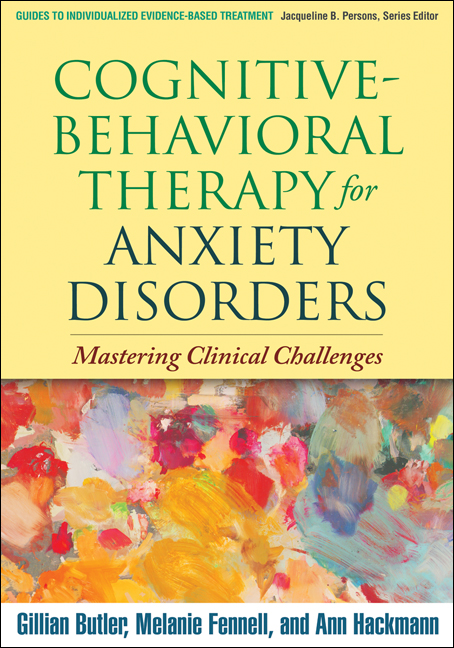Budget-friendly and accessible counselling for anxiety options available
Budget-friendly and accessible counselling for anxiety options available
Blog Article
Discovering Various Approaches in Counselling for Stress And Anxiety Disorder for Lasting Adjustment
When dealing with anxiousness problems, it's important to discover a selection of therapy approaches. Each approach uses special understandings and devices to assist you handle your signs effectively. You might find that combining methods can produce the most effective results. However, comprehending the subtleties of these methods is crucial to promoting enduring modification. What if the right mix could launch a new level of psychological wellness for you?
Comprehending Stress And Anxiety Disorders: A Quick Review
Anxiousness conditions, which affect millions of individuals worldwide, can greatly influence daily life. You might experience frustrating sensations of anxiety or fret that seem irrepressible. These sensations can cause physical signs like a racing heart, sweating, or even wooziness. Typical types of stress and anxiety conditions include generalised anxiousness problem, panic problem, and social anxiousness disorder. Each has one-of-a-kind indicators, yet they all share a tendency to disrupt your regular and relationships.Understanding the root causes of your anxiousness is vital. It might stem from genetics, mind chemistry, or life experiences. Acknowledging your triggers can aid you handle your feedbacks much better. It's vital to keep in mind that you're not alone in this struggle. Many individuals face similar difficulties, and seeking assistance is a solid step toward sensation better. By finding out concerning anxiousness conditions, you're already on the course to understanding and managing your problem much more effectively.
Cognitive-Behavioral Therapy: Testing Negative Thought Patterns
In Cognitive-Behavioral Therapy, you'll begin by recognizing the negative thought activates that add to your stress and anxiety. As soon as you recognize these ideas, you'll function on replacing them with even more positive options. With each other, you'll develop effective coping methods to help handle your stress and anxiety in everyday situations.
Identifying Unfavorable Thought Triggers

Recognizing the specific triggers behind your unfavorable thoughts can be vital in taking care of anxiousness when you run into minutes of distress. Beginning by taking notice of situations that prompt sensations of fear or fear. Is it a jampacked room, an approaching target date, or a discussion with certain individuals? Take down these instances in a journal. This will help you identify patterns in your reasoning. Likewise, notice physical sensations that accompany your adverse ideas, like a racing heart or rigidity in your breast. By determining these triggers, you acquire understanding right into what's fueling your anxiety. Understanding these links is the very first step in testing those ideas and ultimately regaining control over your emotional reactions.
Replacing Thoughts With Positives
Testing unfavorable idea patterns is a vital action in changing your way of thinking and decreasing anxiousness. You may typically locate yourself trapped in cycles of insecurity or tragic thinking. Rather than allowing these thoughts dictate your sensations, practice replacing them with positive affirmations or sensible alternatives. As an example, when you think, "I can't handle this," change it to, "I can handle obstacles one action at a time." This easy modification can greatly impact your emotion. Consistently identifying and countering these negative ideas aids create a much healthier inner discussion. Bear in mind, it requires time and initiative, yet consistently exercising this strategy can lead to lasting change, encouraging you to encounter anxiousness with restored self-confidence and durability.
Building Coping Techniques Together
Replacing unfavorable thoughts is only the beginning of taking care of anxiety efficiently. To develop lasting change, you need to build coping strategies that empower you. Cognitive-Behavioral Treatment (CBT) aids you determine and challenge those unhelpful thought patterns. With each other, you and your therapist can check out exactly how these thoughts effect your feelings and behaviors.Start by developing practical techniques, like journaling or mindfulness exercises, that allow you to challenge anxiousness head-on. When you encounter your worries slowly, you'll find out to react in different ways.

Mindfulness and Acceptance-Based Approaches: Growing Present-Moment Understanding
As you navigate the complexities of anxiousness, integrating mindfulness and acceptance-based approaches can substantially boost your capacity to cultivate present-moment awareness. By concentrating on the here and now, you'll locate that you can observe your thoughts and feelings without judgment (Counseling services for anxiety). This method assists you recognize your stress and anxiety without really feeling bewildered by it.Engaging in mindfulness exercises, such as deep breathing, body scans, or led meditations, allows you to ground yourself in your existing experience. Acceptance-based strategies encourage you to accept your feelings as opposed to fight against them. They shed their power over you.Incorporating these practices right into your day-to-day routine can transform how you react to anxiety when you accept your feelings. You'll establish strength and find out to browse stressful situations with greater simplicity. Eventually, growing present-moment recognition lays the foundation for lasting change, empowering you to lead a more fulfilling life
Exposure Therapy: Confronting Worries Slowly
Exposure therapy helps you confront your fears in a gradual way, making it less frustrating. You'll find out methods to encounter anxiety-provoking scenarios detailed, while likewise developing coping methods to manage your responses. This strategy encourages you to take control and minimize stress and anxiety in time.
Gradual Exposure Techniques

When dealing with anxiety, progressively facing your anxieties can be a powerful way to regain control. This technique, referred to as steady exposure, includes slowly subjecting on your own to the circumstances or things that activate your anxiousness. Start with much less intimidating circumstances and slowly function your way as much as even more difficult ones. If you're terrified of public talking, you may start by speaking in front of a mirror, then advance to sharing thoughts with a pal, and at some point attend to a small group. Each action helps desensitize you to the anxiety, developing your self-confidence in time. Bear in mind, it's important to speed on your own and celebrate tiny victories as you move with this process, strengthening your capacity to take care of anxiety efficiently.
Building Coping Methods
Structure efficient coping methods is essential for managing anxiety, especially as you confront your worries slowly - Counseling services for anxiety. One powerful technique is exposure treatment, where you start by facing your fears in a regulated way. Begin with less daunting circumstances and slowly work your way approximately even more tough circumstances. This progressive exposure helps desensitize you to anxiety triggers, making them less overwhelming.Incorporate leisure strategies, such as deep breathing or mindfulness, to soothe your mind during exposure. Track your progress, commemorating little success along the way to boost your confidence. Bear in mind, it's fine to take your time; the goal isn't click here perfection yet consistent enhancement. By developing these strategies, you'll empower on your own to browse stress and anxiety and embrace life more totally
Psychodynamic Treatment: Revealing Source of Anxiousness
Psychodynamic treatment checks out the subconscious mind, revealing the source of your anxiousness. By examining your thoughts, sensations, and past experiences, this strategy assists you uncover underlying problems and unresolved concerns that may add to your present stress and anxiety. You'll collaborate with a specialist to investigate childhood years experiences, connections, and psychological patterns that shape your feedbacks today.As you acquire understanding into these much deeper layers of your mind, you'll begin to acknowledge how past occasions affect your present actions. This understanding can result in catharsis, permitting you to process emotions you may have suppressed.Through the healing relationship, you can also identify defense devices that may have established over time, using a clearer path to alter. Ultimately, psychodynamic therapy furnishes you with the devices to resolve your stress and anxiety at its core, advertising lasting improvement in your psychological well-being.
Integrative and All Natural Methods: Integrating Strategies for Greater Efficacy
Integrating different healing techniques can improve your trip toward managing stress and anxiety better. By integrating components from cognitive-behavioral therapy, mindfulness practices, and all natural approaches, you can develop an individualized strategy that resolves your distinct needs. As an example, you might make use of cognitive-behavioral methods to test unfavorable thought patterns while including mindfulness workouts to ground yourself in the here and now moment.Additionally, exploring alternative techniques such as yoga or meditation can advertise relaxation and decrease stress and anxiety signs. This blend permits you to create higher self-awareness and resilience.Experimenting with these diverse techniques can aid you discover what resonates most with you. Remember, it's about locating a synergy that works, instead than sticking to a solitary approach. This integrative technique not only offers prompt relief but additionally promotes long-term abilities for handling stress and anxiety, empowering you to redeem control over your life.
The Function of Support Systems: Structure Resilience Via Link
While it might appear that taking care of stress and anxiety is a solitary trip, having a solid support system can play a vital function in your resilience. Bordering on your own with empathetic pals, household, or assistance groups develops a risk-free space where you can freely share your feelings and experiences. You advise yourself that you're not alone in this struggle.These relationships use motivation and can give functional coping strategies that have actually worked for others when you attach with others. It's also a possibility to gain viewpoint; pals can aid you see situations in different ways, minimizing feelings of isolation.Moreover, psychological assistance fosters a feeling of belonging, which can considerably reduce stress and anxiety symptoms. By leaning on your support group, you can develop strength and take on challenges better. Remember, connecting for assistance signifies toughness, and it can make all the difference in your journey toward handling anxiousness.
Regularly Asked Questions
What Are the Common Symptoms of Anxiety Conditions?
You may experience restlessness, tiredness, problem focusing, irritation, muscular tissue stress, and rest disruptions. Physical signs and symptoms can consist of quick heart beat, sweating, and shivering. Identifying these indicators early can help you look for proper assistance and therapy.
How Much Time Does Treatment Normally Last for Anxiousness Problems?
Treatment for anxiousness problems generally lasts anywhere from a couple of weeks to numerous months. It really relies on your individual needs, development, and the strategies your therapist makes use of to help you handle your stress and anxiety effectively.
Can Medication Be Used Together With Treatment for Anxiety?
Yes, medicine can definitely be utilized along with treatment for anxiousness. Combining both strategies typically enhances treatment efficiency, assisting you handle signs while discovering underlying concerns through counseling (Counseling services for anxiety). Constantly consult your doctor for tailored suggestions
Exist Self-Help Methods for Managing Anxiousness?
Yes, there are a number of self-help strategies for taking care of stress and anxiety. You can exercise mindfulness, participate in normal exercise, keep a well balanced diet plan, establish a regular, and utilize deep breathing methods to help minimize anxiety signs efficiently.
Just how Do I Know if I Need Expert Help for Stress And Anxiety?

Report this page